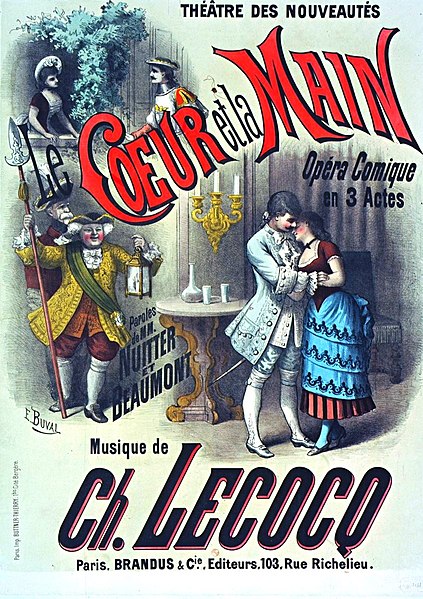Les cent vierges is an opérette in three acts, with music by Charles Lecocq and a libretto by Clairville, Henri Chivot and Alfred Duru. It was first produced at the Théâtre des Fantaisies-Parisiennes, Brussels, on 16 March 1872. The plot concerns the British government's efforts to ship brides out to a distant colony for the all-male colonists. Two French women are accidentally on board the ship taking the brides out, and are pursued to the island by their husbands. The four French intruders are threatened by the colonial governor, but after plotting and farcical goings-on, all ends satisfactorily.
Poster for a 1910 revival
Jeanne Thibault as Gabrielle and Eugène Paravicini as Anatole in Paris revival, 1885
Thibault with Paravicini as the disguised Anatole
Alexandre Charles Lecocq was a French composer, known for his opérettes and opéras comiques. He became the most prominent successor to Jacques Offenbach in this sphere, and enjoyed considerable success in the 1870s and early 1880s, before the changing musical fashions of the late 19th century made his style of composition less popular. His few serious works include the opera Plutus (1886), which was not a success, and the ballet Le cygne (1899). His only piece to survive in the regular modern operatic repertory is his 1872 opéra comique La fille de Madame Angot. Others of his more than forty stage works receive occasional revivals.
Jacques Offenbach
Scene from La fille de Madame Angot, Paris, 1873
Le coeur et la main, one of Lecocq's successes in the 1880s
Giroflé-Girofla, 1874







